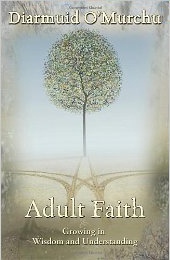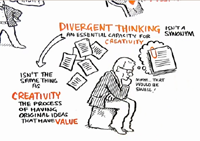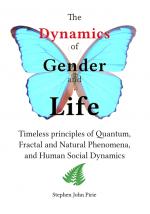
Picked up an interesting book at a friend's place -- Diarmuid O'Murchu's "Adult Faith: Growing in Wisdom and Understanding"1
Diarmuid speaks of needing to engage paradox and the many related implications:
First comes paradox! ... A paradox does not make sense to our rational minds. A paradox captivates a surplus of meaning that cannot be contained with the structure of rational discourse. For an adult spirituality of our time this is a crucial issue. Adults today are rarely satisfied with compelling rational explanations; there is a "surplus of meaning" that transcends rationality, yet to mature adults it feels essential in our search for deeper meaning. The ability to embrace paradox is central to this sense of maturity.
But what most impressed me2 was his explanation of the art of 'letting go' -- as covered in a previous post, I've found greater peace of mind by doing so in more substantial ways:
All major religions reinforce the great paradox of losing one's life to find it anew. It makes no logical sense, yet intuitively and experientially we know it holds truth ... It is salutatory to learn the wisdom of letting go rather than continuously battling it out forever striving to be a winner, which is often a subconscious fear of losing control. By embracing letting go in a more wholesome way we become compassionate, caring, and more at peace with our paradoxical universe.
Well said, I say. As I've often explained to business groups, the art and science of "productive-creativity"3 is being focused, while letting go.
It's a paradox that many seem to have great difficulty with, but as Dairmuid explains we can't completely get our head around it (i.e. make rational sense of it), so we have to have 'faith in the process' without trying to fully understand it.
What all this comes down to is that the paradox is rooted in the infinite: we can't think the infinite4, so inevitably we all must and do operate on faith.
In fact, what most scientists conveniently forget (but which Gödel's Incompleteness Theorems and Heisenberg's Uncertainty Principle amply remind us) is that at the core of life lies unending mystery and possibility.
In many respects it is science's expectation of finding a perfect machinery of life (e.g. specific genes for various behaviours) that imperils our race's future. The dirge of  perfectionism infects not just religious thinking but the sciences as well5.
perfectionism infects not just religious thinking but the sciences as well5.
It is science's reductive perfectionism —seeking to reduce the unending fullness of life to a few component pieces— that dampens and diminishes our natural creativity and the expansive holistic solutions we now so urgently need.
I'll finish on another quote by Diarmuid:
"Our trust, our hope and our faith are lured in the direction of enlarged horizons."
Update (Dec. 2012)
Having a discussion on Facebook, "letting go" and falling ... into life, love.
I remarked how it involves trust and that it's the scariest, bravest and most magnificent thing. Not "some" trust, but a "whole universe" of trust.
And I just realised something (due to that discussion) ... "born again Christians" go through that process, but assign "God" as the agent that 'catches and supports'. When falling in love, it's the person we're in love with that 'catches and supports', but it's often a huge thump at the bottom when he/she inevitably fails to catch and support. Too demanding for one person -- it's too narrow, restricted and dependent on one person.
Falling into life involves trusting the very process of life, not just one person, per se.
And while I was reflecting on all this, something else just occurred to me. I started remembering little (big) events that occurred years ago, and how I found them immensely delightful, memorable and bewitching. Some extraordinarly rich and wonderful memories. It was when others showed their vulnerability to me: their ability to 'let go' social constraints and be themselves, naked, so to speak. I don't think I ever realised that before.
Amazing.
- 1. Diarmuid O'Murchu, Adult Faith: Growing in Wisdom and Understanding, Orbis Books, New York, 2010.
- 2. Some sections "mightily unimpressed" me as well, particularly some of his ideas regarding individuality
- 3. Sir Ken Robertson provides a great definition for creativity in his RSA presentation: "Changing Education Paradigms" -- "creativity (is) the process of having original ideas that have value".
- 4. despite what many mathematicians like to think, any conceptualisation of the infinite requires one, by definition, to think again!
- 5. See Rest-stops in the sky for further explanation on how the ideal of perfectionism adversely affects those who believe in it.
